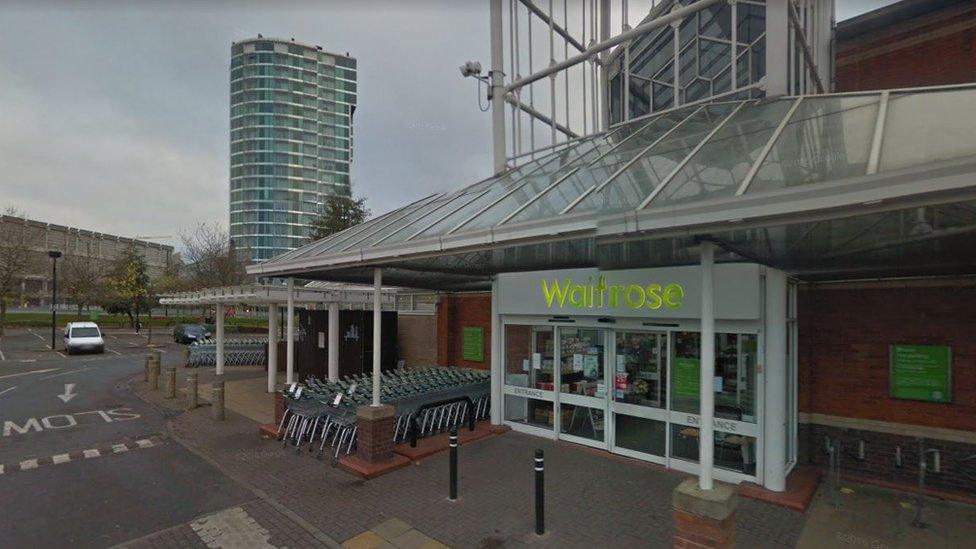'My Waitrose is being replaced by a Lidl'
- Published
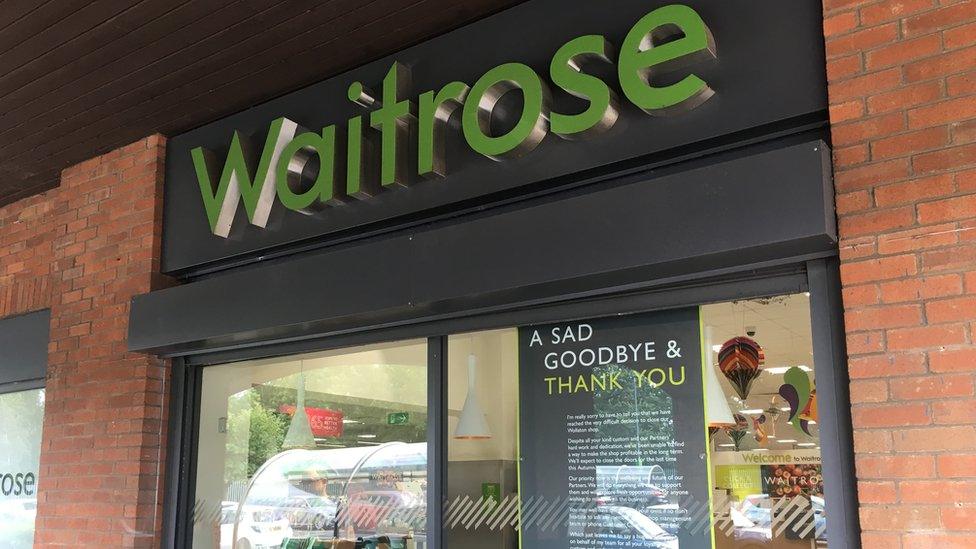
Wollaton's Waitrose store is due to close in the autumn
It's a glorious summer's day in Wollaton, but for shoppers at the local Waitrose there are clouds on the horizon.
The branch in Nottingham is among a handful of unprofitable stores around the country being axed by the high-end retailer as part of a restructure.
Some outlets are being sold to discount rivals - with German firm Lidl buying at least three of the stores, including Wollaton.
But why are customers upset, especially given the prospect of a potentially cheaper big shop?
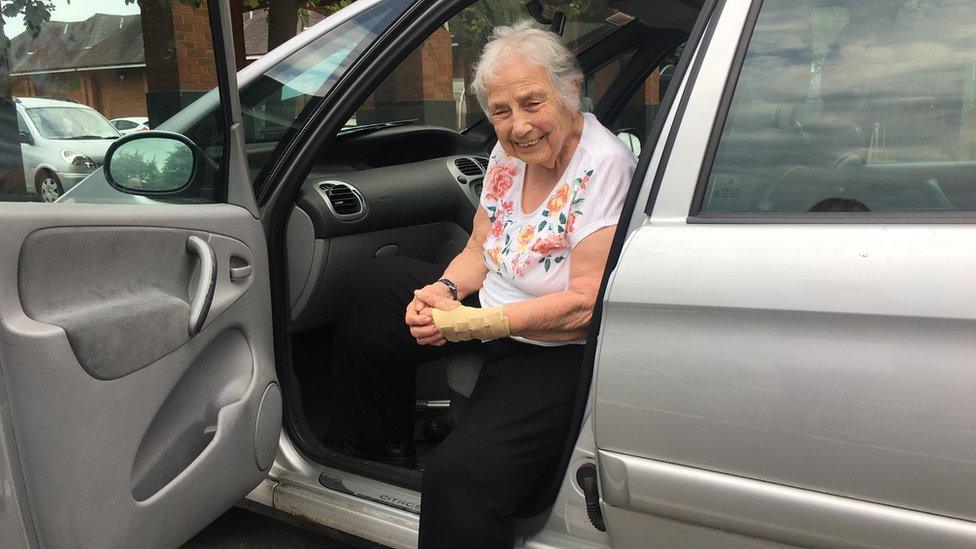
Daphne Simpson said she felt the loss of Waitrose would take the area downmarket
"Three quarters of the people who live here are not Lidl customers," said shopper Daphne Simpson.
"They expect a higher quality product and this is what you get from Waitrose here. Everyone I've spoken to is upset about it."
Another regular, Ian Hall, said: "I'm disappointed. The staff were always friendly and helpful. They'll talk to you, unlike other supermarkets where they're trying to rush you out all the time.
"I'll miss the little things like different types of cheeses. I think it's going to be a lot more basic with Lidl and that's the problem.
"We'll still keep coming here because we live very close but I don't think we'll get the same quality.
"It could also drop the price of houses because it went up round here when Waitrose came in."
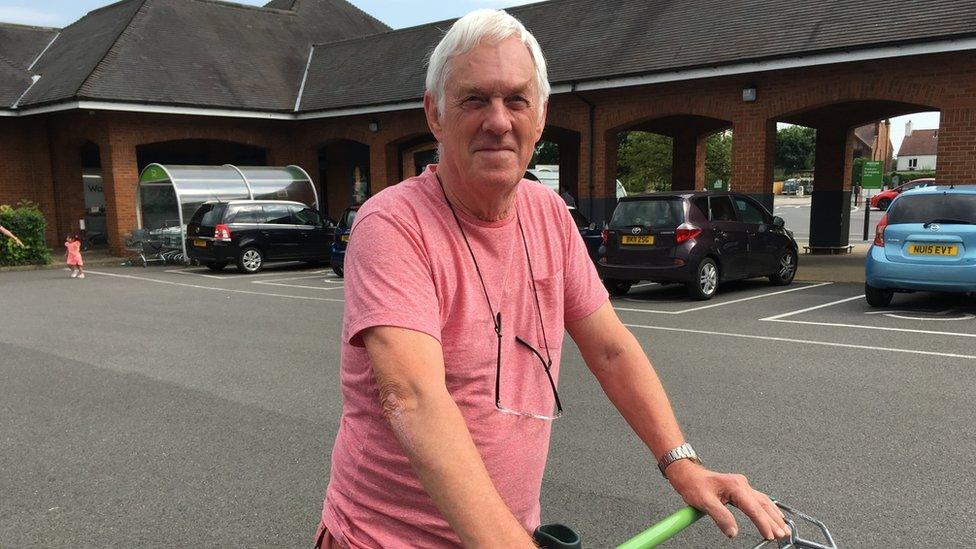
Ian Hall said he would still shop at the store when it becomes a Lidl
The subject of property prices came up several times when the BBC spoke to shoppers outside the store.
A 2016 study by Lloyds Bank, external suggested being near a Waitrose could add 10% to a property's value. The boost given by a nearby Lidl store was a more humble 2%.
Customer Sharon Leame said: "Waitrose did sort of make the area feel more upmarket. I'm really disappointed. I'd bring my mum up for a coffee and the staff were really nice.
"Lidl's fine but Waitrose was just such a nice meeting place. I'm shocked."
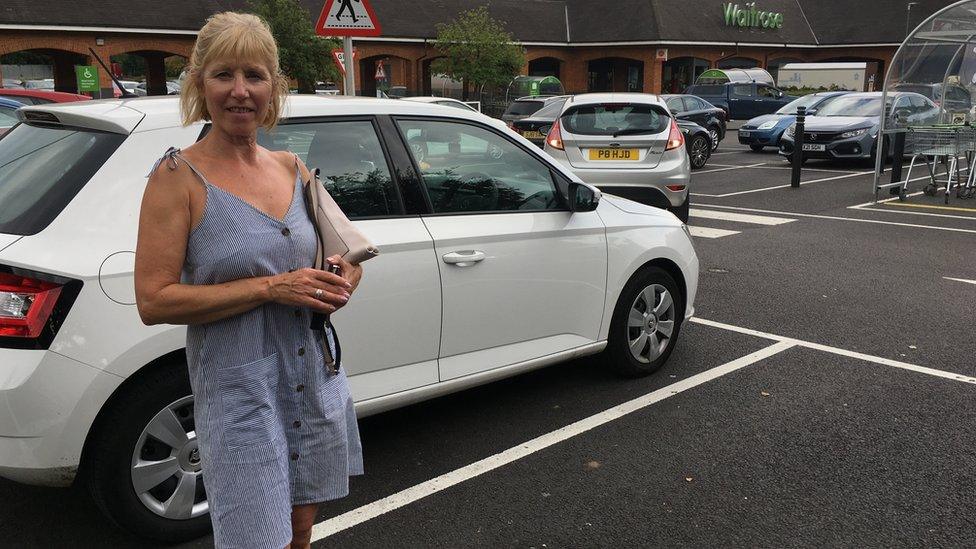
Sharon Leame said the staff would be missed
Of the seven store closures announced earlier this month, external, at least three are being sold to the German discount chain - the others are Oadby in Leicestershire and Bromley in London.
A fourth, in Sandhurst, Berkshire, has been sold to a yet-to-be-revealed buyer, while the future of the other three - Marlow, Stevenage and British Airways HQ near Heathrow - is not yet known.
Meanwhile, a Waitrose in Blaby, Leicestershire, that closed earlier this year is to become an Iceland and another in Ashbourne, Derbyshire, is due to reopen as Bargain Buys.
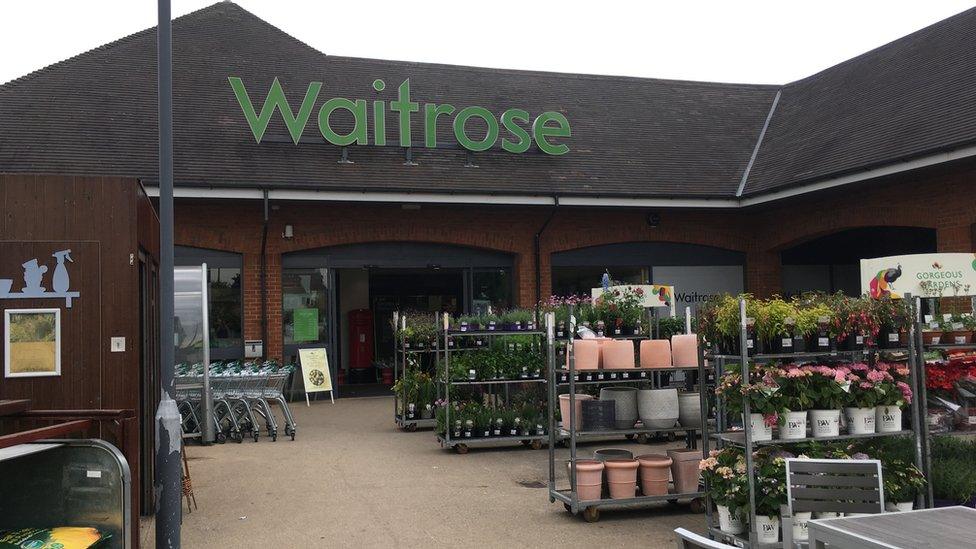
The Wollaton store opened four years ago
So why has this happened and what does that mean for the future of Waitrose?
Nelson Blackley, a retail research expert at Nottingham Trent University, said Waitrose had come under "intense price pressure" as more affluent shoppers switched to the discounters, which have developed premium ranges.
He said: "Where you shop has often been interpreted as a barometer of social standing in a 'class-obsessed' Britain, and so Waitrose's affluent shoppers have previously been happy to pay a premium for staple products because of the opportunity to also buy a wide and desirable range of premium foods.
"Lidl - and its fellow German discounter Aldi - are drawing in middle-class bargain-hunters as well as those on a tight budget, overtaking Waitrose to become the UK's fifth and seventh largest grocers, controlling nearly 14% of the market."
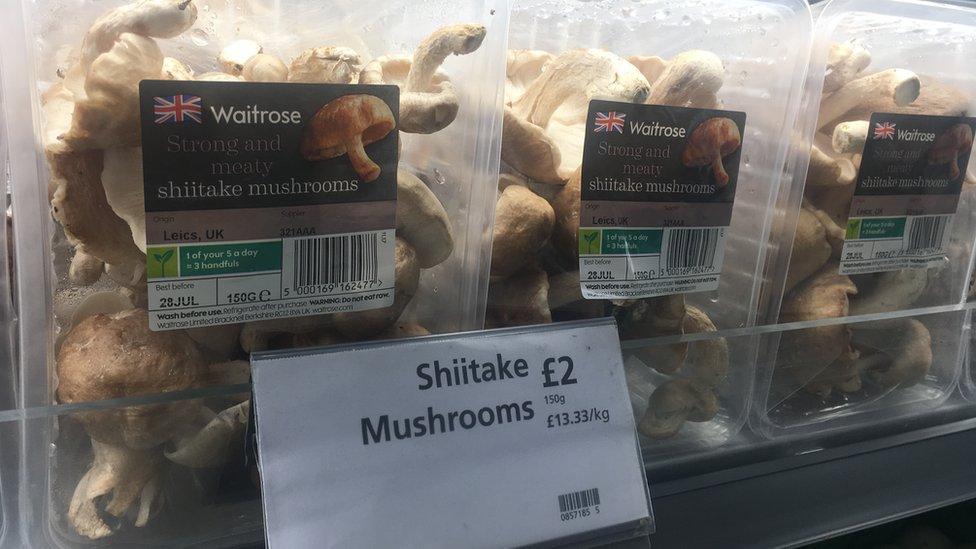
Many customers said they feared Lidl would not have as large a range of products
Harry Wallop, author of Consumer: How Shopping Fed the Class System, described supermarkets in Britain as "crucibles of snobbery".
He said Waitrose had become known as a "badge of a nice middle class area, one in which you are bound to find excellent schools and good coffee shops".
"There is a body of consumers who would love to have a Waitrose on their doorstep," he said.
"There is this snobbishness where people are prepared to man the barricades against a Tesco but if it's a Waitrose, a fair amount of them will change their mind."
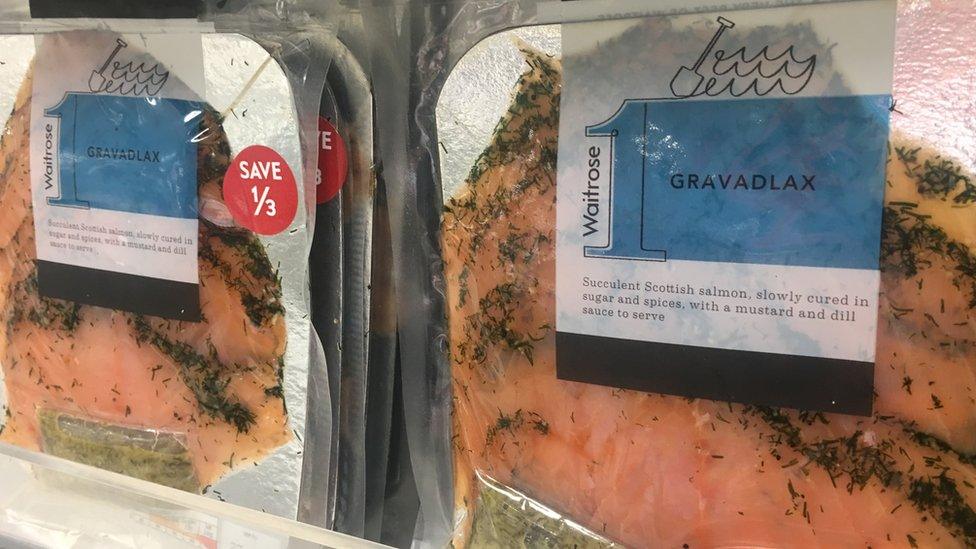
Where will the people of Wollaton get their Gravadlax from now?
But Lidl fan Gemma Lenney, from Leicestershire, said people should focus on the upside of their store switching from Waitrose to a discount retailer.
She said: "With two young kids, it makes a big difference to the budget. A cheaper shop won't change the people who live in Oadby other than give them more money to spend elsewhere.
"I've not had any bad food from Lidl. The cheapness does not affect the quality."
In a statement, Lidl said: "In addition to ensuring that a supermarket remains at the heart of the respective local communities, the new stores will provide households with access to high quality affordable produce.
"We look forward to confirming further details in due course."
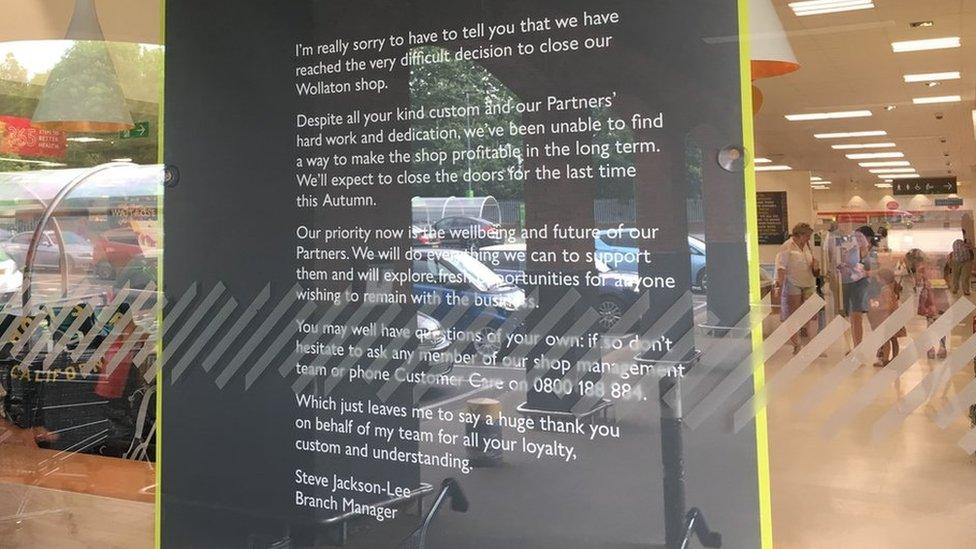
A sign advising shoppers of the imminent closure was put up earlier this month
Waitrose confirmed 677 jobs would be affected by the recent closures and said it would support staff to "explore opportunities for anyone wishing to remain with the Partnership".
A spokesman said: "We share the sadness and disappointment this has caused for our customers.
"The decision to close isn't something we have taken lightly, but despite the best efforts of everyone involved, we haven't been able to find a way to make the shops profitable in the long-term."
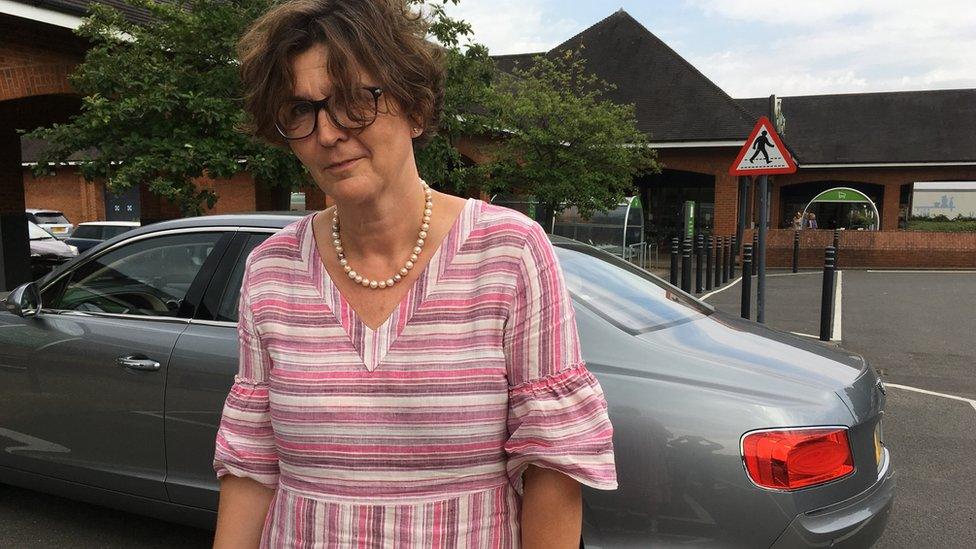
Waitrose customer Charlotte Low said she thought many would miss the cafe
Back at Wollaton, not every Waitrose shopper was feeling blue.
Charlotte Low said: "I'm happy and sad at the same time. In terms of shopping, Lidl will probably be cheaper and with house prices, we're not planning to sell so it won't make any difference.
"Waitrose deliver online anyway so we'll just do that."

Follow BBC East Midlands on Facebook, external, Twitter, external, or Instagram, external. Send your story ideas to eastmidsnews@bbc.co.uk, external.
- Published4 June 2019
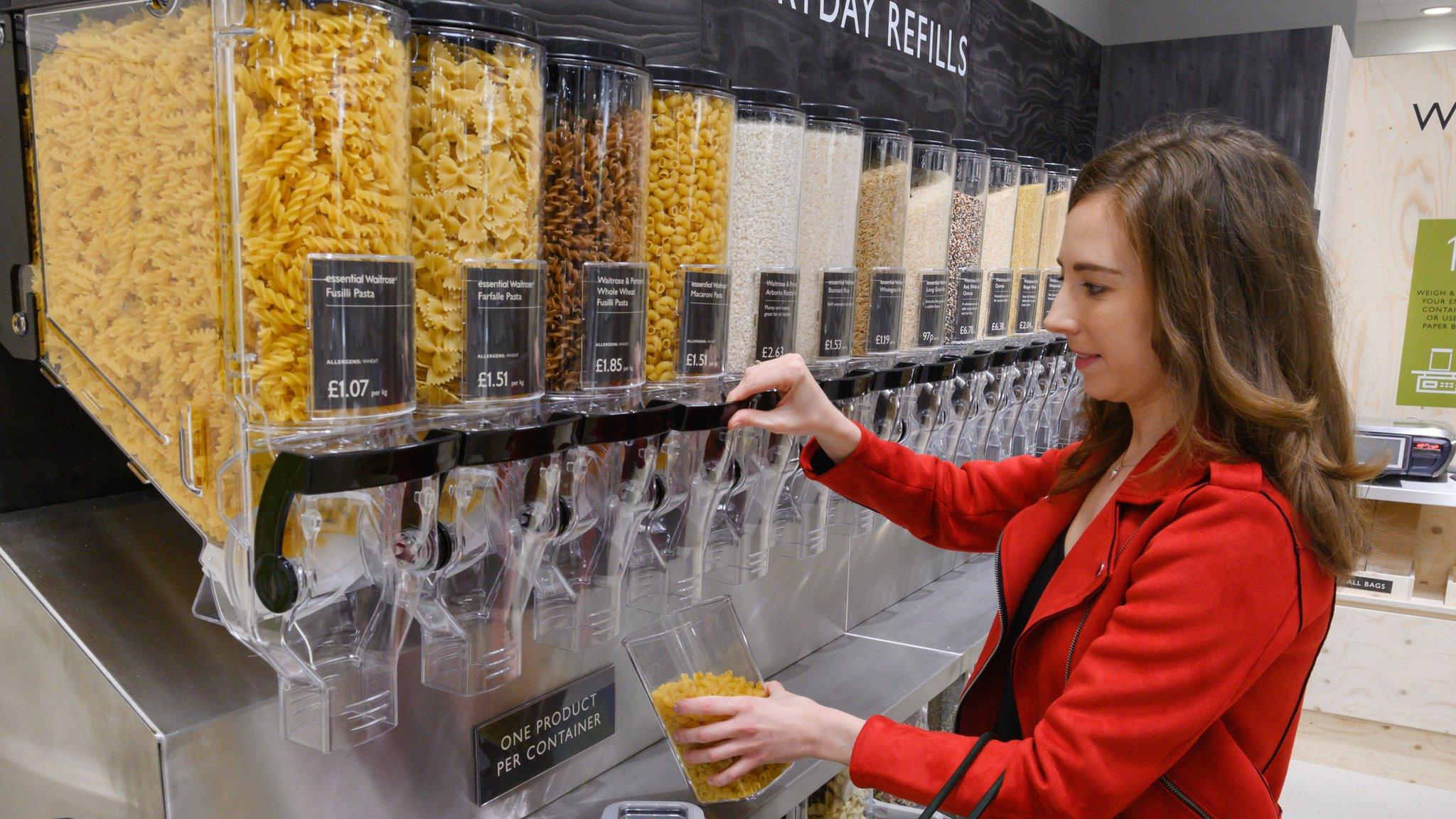
- Published24 December 2018
